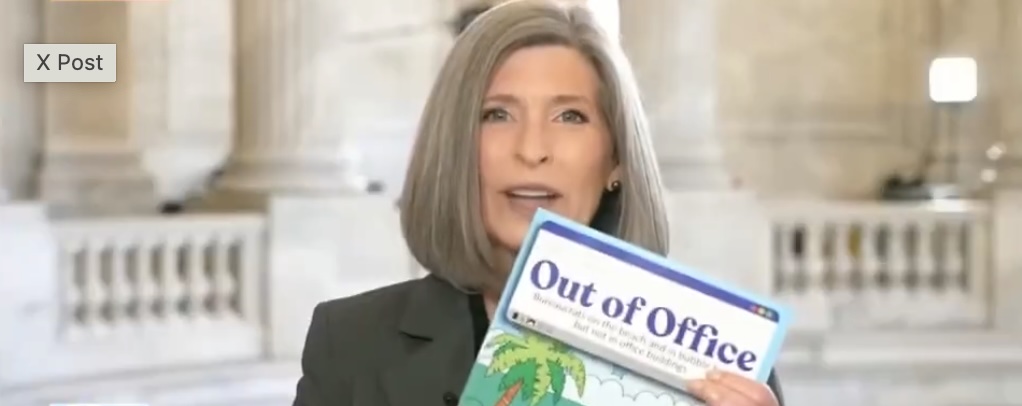GOP Senator introduces bill to send one-third of Federal workers packing out of DC
(Daily Caller News Foundation) – Republican Sen. Joni Ernst of Iowa introduced legislation Thursday that would send nearly a third of the federal employees out of the Washington, D.C. metropolitan…

(Daily Caller News Foundation) – Republican Sen. Joni Ernst of Iowa introduced legislation Thursday that would send nearly a third of the federal employees out of the Washington, D.C. metropolitan area.
The bill, known as the ‘Decentralizing and Reorganizing Agency Infrastructure Nation-wide To Harness Efficient Services, Workforce Administration, and Management Practices (DRAIN THE SWAMP) Act, is far more sweeping than the “Returning SBA to Main Street Act,” legislation introduced by Ernst Dec. 12 that focused on the Small Business Administration (SBA). Ernst told the Daily Caller News Foundation that the move would improve services for Americans while saving billions of taxpayer dollars.
“Federal employees don’t want to work in Washington, so why should taxpayers be footing the bill? By relocating at least 30% of the federal workforce, we will save billions and improve service for veterans, small businesses, and all Americans. The bureaucrat laptop class has been out of the office for far too long, and it is time to get them back to work for the American people,” Ernst told the Daily Caller News Foundation.
The legislation requires most government agencies to “promote geographic diversity, including consideration of rural markets” when relocating employees from the D.C. area and to “ensure adequate staffing throughout the regions of the Administration, to promote in-person customer service.” Exceptions are made for fewer than 10 agencies, most involved in national security, like the Department of Defense, Central Intelligence Agency, the Department of Homeland Security, and the Department of Energy.
The legislation also requires most federal agencies to reduce the total office space in their Washington, D.C., headquarters by at least 30% in a two-year timeframe following the bill’s enactment.
Ernst issued a 60-page report Dec. 5 that covered findings from Ernst’s investigations into telework since she sent an August 2023 letter to 24 government agencies requesting a review of the issues involved with telecommuting.
Previous investigations by Ernst into telecommuting by federal employees detailed the issues that telework created involving locality pay, an adjustment to the basic pay of civilian employees in the federal government intended to make sure that federal employees have comparable compensation to private-sector counterparts in a given area of the country. In the August 2023 letter sent to 24 government agencies requesting a review of the issues involved with telecommuting, Ernst cited a media account of a VA employee who attended a staff meeting while taking a bubble bath.
Ernst issued a 60-page report Dec. 5 that covered findings from her investigations into the issues involved with telecommuting by federal employees. Those findings detailed issues that telework created involving locality pay, an adjustment to the basic pay of civilian employees in the federal government intended to make sure that federal employees have comparable compensation to private-sector counterparts in a given area of the country.
In one case cited by the senator on multiple occasions, a United States Agency for International Development (USAID) employee received locality pay for the Washington, D.C., area despite living full-time in Florida. The employee in question retired before the conclusion of the probe, according to a summary posted on the USAID inspector general’s site April 30.
Ernst’s legislation mandates that affected federal agencies “ensure that the rate of pay of the employee is calculated based on the pay locality for the permanent duty station of the employee.”
The Office of Management and Budget did not immediately respond to a request for comment from the DCNF.



